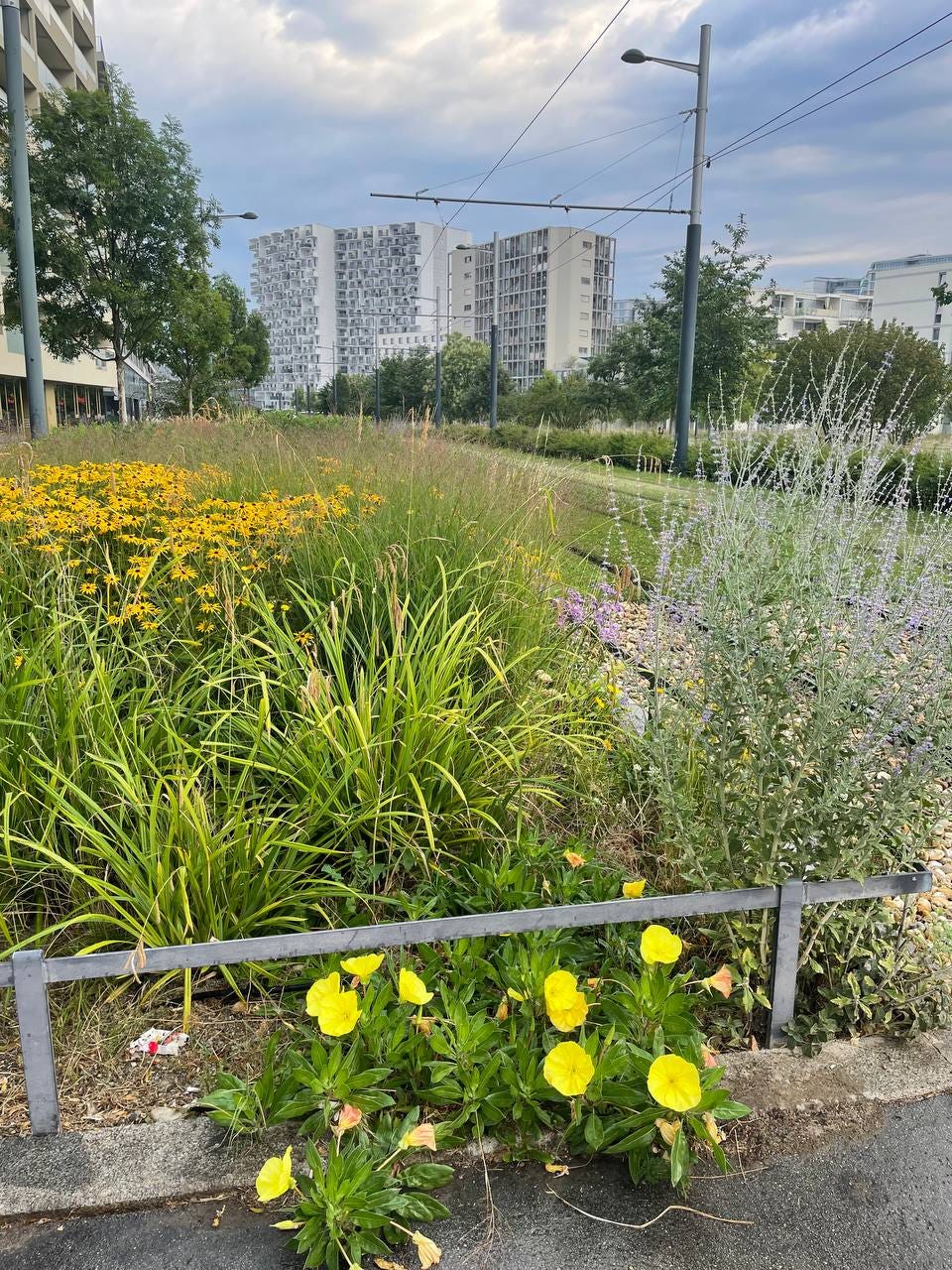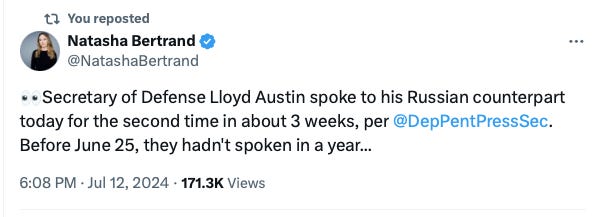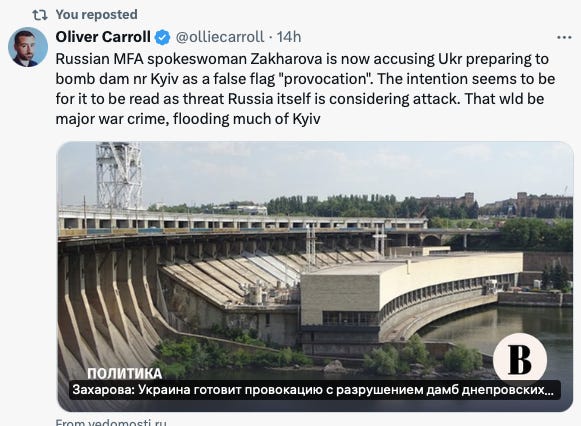I snapped this photo early yesterday morning, walking through what is referred to by the press and locals alike as one of Vienna’s “worst” neighbourhoods. It made me pause and think about reputation vs. reality. Later that day, I read a fascinating story in German about gangs (for lack of a better word, they aren’t real gangs in the American sense, rather groups of young men with ethnic ties fighting against each other within the city, over stupid stuff like who offended someone’s sister) of young men from Syria, Afghanistan, Chechnya, etc. I share it here because it was the first time in my memory that local journalists actually tried to dig really deep and explain what was happening online and in the parks where these fights took place. If you read German, this article is pretty eye opening into a world few of us understand. In comparison to the streets of America, this all reads pretty harmless, but it is a shock for a city that has generally assumed itself to be safe, and everywhere. We don’t have a neighbourhood here in which one cannot walk at night, at least to my knowledge.
This week it felt like the curtains were pulled on so many situations. First and foremost, in the U.S., where media spent the week trying to figure out which Democratic politicians would next call on Biden to take himself off the ticket. I found this podcast to be particularly helpful in that regard:
And then Biden called Zelensky Putin, and Harris Trump, all while the cameras were rolling, and the world observed a “just when you think it can’t get worse” moment. What scares me, more than the fact that he wants to run again, and still hasn’t taken himself off the ticket, is that he is the actual president now. Which means the country, and by default, and a lot of global politics, is now being run by a group of advisors whom we didn’t elect. This little tidbit caught my attention yesterday:
You can say what you want about Putin and his murderous mission to try and kill off a neighbouring country, but he clearly still has his mind in check. He knows what he is doing. Some have speculated online that the motivation behind the horrific, unfathomable attacks on Ukraine’s largest children’s hospital and on several other hospitals in Ukraine this week are Russia trying to get Ukrainians to turn on their own government. To get the population to demand the government come to the negotiating table.
The thing is — the Ukrainian population, a lot of it at least, is already mad at Zelensky and his team. You hear the whispers. They are infuriated with how the draft is being carried out, with the men being locked inside the country, with how draft officers literally carry men off the streets. A woman told me yesterday her 20 year-old son is still in Ukraine. She is here, working. She was told it would now cost her €12,000 to get him out, legally (i.e. with papers allowing him to leave). That’s a big jump, I exclaimed, the price used to be €7000. She explained €7000 is now the price to be simply led to the forest and told where to run, and when. Across the border. She went on to say how hard it is when you have electricity cuts of sometimes 12 hours a day, that you can no longer store food in a fridge that might be turned off for half the day, and it is +36C outside. That prices in Ukraine’s grocery stores are now more expensive than in Austria. She said she knows women here who are working online for Ukrainian companies, and they find their cost of living here, at least for food, to be cheaper than what they would spend now in Ukraine. I have no firsthand knowledge, but I'll take her word for it.
This same woman even told me that once a team of draft officers came to a cancer clinic and tried to take the men from there, arguing if you are going to die anyway, you might as well go defending your country. My jaw dropped to the floor. What use would they be as untrained soliders? She also explained the mommy chat online (because yes if your son is 25 you are still a mom) is that the young men should not sign contracts because that practically guarantees you will be sent to the front and will not come back. Better to go in with no limit on time to be served. It might save your life.
Every one of these conversations circles back to the same question: when will it all end? And no one has a good answer. No one has even an idea of an answer. I read this week Ukraine wants to plan another “peace” conference in November. The timing seems questionable. We are going to have a certain amount of organized chaos between now and November on a global scale. The perfect metaphor for that is Orban, president of a seemingly totally irrelevant, minor European nation, flying around and courting world leaders like some kind of modern human carrier pigeon. After meeting with Zelensky and Putin, he flew himself to China to chat with Xi and then showed up at Trump’s place in Florida. It’s almost as if that axis of autocrats has moved onto a post-November 2024 world already. It is mind boggling if you stop to think about it. It feels like when the kids in the classroom know it will only be a substitute teacher that day. Which means we could be in for a very bumpy road ahead.
India’s Modi flew to Moscow and embraced Putin like a long lost friend immediately in the aftermath of the horrible attacks on Ukraine this week. How do you hug a man who just gave the orders to murder children with cancer? And then Modi flew here, to Vienna, and an entire city block around the Ritz Carlton was cordoned off by tons of police, looking board and hot, all getting paid triple time, I’m sure, and entirely unnecessary show the kind we only put on for not so democratically elected leaders. But then again, what is the value of human life in India, one may ask. It all makes your stomach turn when you stop to think about it. You grow up thinking the good guys should always win. As an adult, you realise that is anything but a foregone conclusion.
This news went relatively unreported yesterday, and I think it is frightening. The hospital hits this week illustrate perfectly that there are no red lines when it comes to Russia’s intent to bring Ukraine to some kind of surrender Russia can present as a win. War crimes never stopped them before. The population of Kyiv is already exhausted, now living with electricity cuts and daytime attacks.
Here in Austria, the arrival center for Ukrainians claims it is full when it gets close to maximum capacity. Yes, families are still arriving. Yes, sometimes they are turned away. It is a totally in-transparent system in which capacities are being held purposely low by low-level on site managers on power trips so as to get the message back to Ukraine: Austria is full. I still receive requests on a daily basis from people asking for advice and guidance, and the bottom line is you are on your own. There isn’t a welcome committee (not that there ever was, really) here waiting to explain to you how to set up a new life you can afford in Europe. Meanwhile, millions of Ukrainians have already moved to Europe, and as the war drags on, you can imagine that move will become permanent for many, despite having only temporary residence status, for now.
A mom wrote me yesterday explaining she is here with two kids, and after rent, electricity and gas, she doesn’t have enough money. I had to say I am sorry, I don’t think there is somewhere institutional you can turn to. Yes, such places exist in “socialist” Vienna for locals and permanent residents, but Ukrainians don’t have that status. So just like anywhere in the world, if the math doesn’t add up, you are on your own. This is a shock for many. They saw the images of how Europe met the first waves of Ukrainian moms and kids fleeing Russia’s initial invasion, and now hope there might still be some kind of programs in place. But in truth, there aren’t really. You have to make the math work on your own. The amounts paid out by the Austrian authorities are not enough to live on. I asked a Ukrainian recently about western Ukraine, and she told me about astronomical (in Ukrainian terms, of course) rents in Lviv, because of course for families who do not want to have to leave dad/husband behind, a move to western Ukraine is about the only safe-ish option available.
It is a strange phase, I would say. On the one hand, you have Ukrainians who have already integrated well, learned some German, are working, kids in school, basically have gotten used to life in Austria, have accepted this as home, for now, and then you have folks still arriving now, and they are met with exhausted faces of social workers and very few palatable options. And you have to imagine they did not live in a bubble over the past two plus years; they probably left Ukraine already exhausted. Have a look at this photo essay from Saltivka, northern Kharkiv:
A Look at Life in a Shattered Ukrainian Neighborhood
In other news this week, a very interesting long read in the FT about Serbia…
“Vučić is neither a Russian proxy nor a little Putin, as he is sometimes portrayed,” says Vejvoda. “Do most Serbs love Putin? Yes. Do they love Russia? Yes. But when asked where you want to travel, they all want to go to western Europe.”
The author, Alec Russell, writes, “How Serbia's Vučić is preparing for Trump - while courting China and not quite cutting loose Russia. My deep dive with Marton Dunai into the murky world of Serbian nationalism, great power games, business deals with Jared Kushner & more...”
The European country playing off the US, Russia, China and Europe…
…and this almost unbelievable, apparently true story, about Russia’s plans to murder the CEO of Germany’s largest arms producer:
As for our own activities, it is slow now, which is understandable, so for now I must tell Ukrainians who contact me that I am out of cards. They usually understand. If we receive more donations, and can place another order, I will be happy to send more out to those who have written me directly. It is heartbreaking as they write how old they are, where they are from, send me a list of health problems, but the thing is, I will help anyone who contacts me asking for help if I can. I don’t need to be convinced they are legitimately in need because I assume anyone asking for a €50 grocery card is legitimately in need. It kind of goes without saying. I use my Telegram group to explain what we can and cannot do at the moment. 99% of the time this is met with understanding and gratitude.
Cards for Ukraine, donation page
One final thing to point out. I came across this summary this week about the state of the war in Ukraine, and I think it is a valuable synthesis of what we do know at this moment. I cannot comment on military matters, but what I can say is that in my very layman’s opinion, the population of Ukraine would now accept the kind of “peace” that would not have been acceptable a few years ago. Having said that, there are zero guarantees Russia would ever stick to any peace. I still think it wants Kyiv and Odesa. So I don’t know how how balance those two things if you believe them both to be true. And what is really infuriating are headlines like “European country X read to donate Y fighter jets”, like, where were you two plus years ago? How many Ukrainian civilians had to die before you got comfortable with the idea of more aid? And not striking real military targets within Russia, I don’t understand it either. The Russian population lives for the moment, with the exception of Belgorod, as if the war is only on their television screens. They do not feel it, economically or otherwise. They stopped travelling to Europe years ago. My former Moscow “diet guru” nutritionist is currently on holiday in Thailand, feeding elephant. She doesn’t seem to be missing out too badly on Euro summer.
The one thing all of this grim has taught me personally, and I am sure many many others, is to not take anything for granted in terms of what may come tomorrow. To live in the moment now rather than planning for five years from now. But this short-term attitude also takes its toll. It means living with high stress levels over an extended period of time. We humans generally feel happier when we have a goal to work towards.
I was recently in a doctor’s office, translating for a Ukrainian patient, and her blood pressure was abnormally high, despite her relatively young age and good health otherwise. It was the day Russia attacked the children’s hospital in Kyiv. The nurse nodded and immediately understood the reason for the measurement. No explanation was needed.







You might find this paper interesting : https://research.ku.dk/search/result/?pure=en/publications/managing-protracted-displacement(1faa90ff-72ec-449d-8955-eb5a598cc40a).html